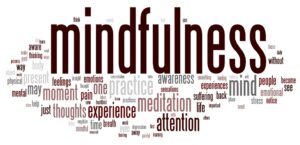Famous Psychologist Reveals The Trick To Unlearn Bad Habits

Each one of us plans and struggles every single day to build some good habits that could prove beneficial for us, be it exercising on time or eating healthy. In fact, most of us deliberately try to incorporate these habits into our daily life.
But if we are being honest, we all know it’s not an easy feat especially if we are used to habits that are the exact opposite of these good habits. It’s clearly hard eating fruits for a snack when you can just order a pizza instead. But it’s not just about eating habits, any habit that is inherently perceived as bad has something about it that makes it so hard for us to quit. Be it smoking a cigarette or drinking alcohol. But the good news is that there really is a solution to this. Renowned psychiatrist, Judson Brewer, revealed a trick that can help you in this situation.
How bad habits are developed
In one of his TED talks, Dr Brewer said that people can make use of mindfulness and curiosity in order to give up on bad habits and adopt some good habits instead. As per Dr Brewer, people find it hard to pay attention to what is happening in the present due to the reward-based learning process which is known as positive and negative reinforcement.
Our brain classifies any action as a “trigger, behaviour, reward”. And soon enough, we develop various triggers that assist us to perform the same activity. Humans tend to perform this action repeatedly until it becomes a habit.
Suggested solution
According to Dr Brewer, we can use the exact same trick of trigger, behaviour and reward that develops a bad habit to develop good habits instead and unlearn the bad habits.
He talked further about his experiment and said that instead of asking a woman to stop smoking, they asked her to be mindful of the process of smoking, basically take a note of everything that happens in her body while she was smoking. After being mindful of the entire process, the woman showed her disgust regarding smoking.
Dr Brewer explained this entire experience by the woman and its reasoning and said that she had gained wisdom instead of knowledge.
What is mindfulness
Mindfulness is paying deep attention to our actions or behaviours and understanding their outcome. When we are so deeply aware of our actions and can count on the entire process of any specific behaviour or action that we perform habitually or rarely, we become disillusioned about the momentary gratification and let go of bad habits.
It might sound simple but practising mindfulness properly takes time but people can master this skill easily after proper practice. Once you master mindfulness, you can easily unlearn your bad habits and develop good ones.
Benefits of Mindfulness
- Positive effect on overall well-being
Practising mindfulness assists you in developing certain attitudes that lead to a satisfying life. It makes it easier for us to savour and cherish every small thing as they occur, you can mark better engagement in activities and become better equipped at dealing with adverse situations. Most of all, it helps with a better and deeper understanding of everything.
- Positive effect on physical health
Along with overall well-being, physical health also benefits greatly from practising mindfulness. It helps relieve stress, treats heart disease, lowers blood pressure, improves sleep, reduces chronic pain, and alleviates gastrointestinal difficulties.
- Positive effect on mental health
Lately, psychologists and psychotherapists have also resorted to using mindfulness as a significant part of therapy. It can be used for treating depression, anxiety disorders, obsessive-compulsive disorder and substance abuse.

